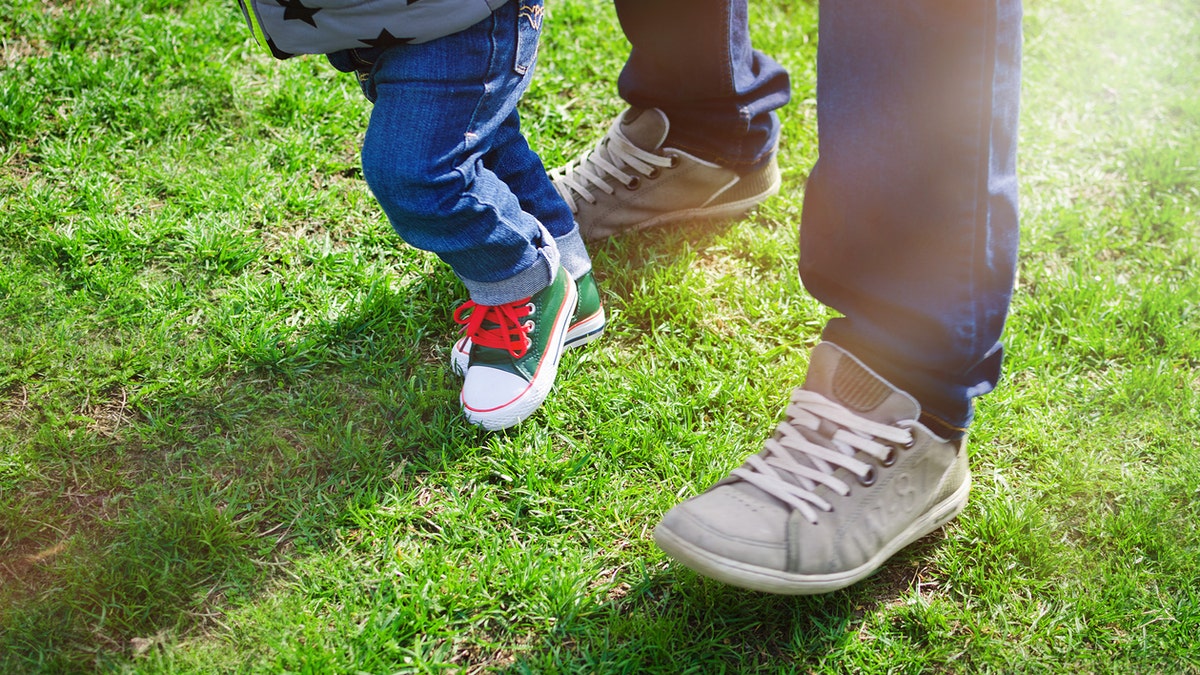
FILE (iStock)
Is there anything that can be said about dads that hasn't been said in the 108 years since 1910, when the first Father's Day was celebrated in Washington state? Or even in the 46 years since 1972, when the occasion became a nationally recognized holiday?
Yes. In fact, here are five important things that researchers have discovered about fatherhood in just the past year:
Dads are more engaged with their kids.
Just this month, it was reported that today's fathers are more involved in their children's lives than in the past. Dr. Kevin Shafer, a sociology professor at Brigham Young University who co-authored the study with sociologists from Ball State University, said: "We found that today’s dads spend more time, provide more care, and are more loving toward their kids than ever before."
And even dads who don't spend adequate time with their kids are showing a desire to do better. A Pew Research study last fall reported that although U.S. fathers are spending more time caring for their children than they did a half century ago, 63 percent still say they spend too little time with their kids.
A wide body of research going back decades confirms the importance of a father's presence in the life of his children, of course. But a more recent study, which came out last Father's Day, suggests that a father's increased involvement in childhood caregiving is linked to a decrease in childhood obesity.
Not surprisingly, research this past year also continues to confirm the negative effect of absentee fathers. A Penn State study in December demonstrated that a father's rejection can contribute to a child's increased social anxiety and loneliness, while a Princeton study last summer revealed that the absence of a father can have negative impacts on his children extending all the way down to the cellular level.
Dads are getting older.
The endearing term "dear old Dad" is not that far off the mark, if a recent study is any indication. A Stanford University Medical Center study last August found that the average age of newborns' fathers has increased by 3.5 years over the past four decades.
From the same study, it was reported that "the portion of newborns' fathers who are 40 or older doubled from 4.1% to 8.9%" over the study period, while "the proportion of dads who were 50 or older rose from half a percent to nearly one in every 100."
Dad's mental health matters – and it impacts his kids.
A number of studies released over the past year reveal the link between a father's mental health and the well-being of his children.
For example, a University of Southern California study last September added new insight to the issue of postpartum depression in males, a phenomenon that has gotten increased attention in recent years. The research showed a link between testosterone and postpartum depression in men, which manifests itself in the form of greater depression, more stress, more dissatisfaction and greater aggression.
A related Lund University study suggests that postpartum depression in men is more difficult to diagnose because of limitations in screening and because many men do not seek help.
Meanwhile, a University College London study last November revealed that teenagers whose fathers exhibit depression are more likely to become depressed themselves. In addition, a study from the University of Maryland School of Medicine this spring revealed that stress in a father's life can impact the brain development of his offspring.
A dad's treatment of his daughter impacts how she views men.
We have known this for years, of course, based on a wealth of solid research. However, a study last November from the University of Utah drives the point home once again. The research revealed that women who grew up without a caring father are conditioned to see more sexual intent in other men.
Danielle J. DelPriore, the study's lead author, said: "This research underscores an important psychological change – perceiving greater sexual interest among men – that could increase a woman's likelihood of engaging in unrestricted or risky sexual behavior in response to growing up with a disengaged father."
The university released a related study last year showing a link between a father's involvement and risky sexual behavior on the part of his daughters.
Dads like it when their babies look like them.
Finally, a fascinating study from Binghamton University, part of the State University of New York, released in March reveals that dads like it when there is a clear resemblance between them and their offspring.
According to Science News: "Data from the first two waves of the study indicated that infants who looked like their father at birth were healthier one year later, suggesting that father-child resemblance induces a father to spend more time engaged in positive parenting, as these fathers spent an average of 2.5 more days per month with their babies than fathers who didn't resemble their offspring."
So, despite some of the cultural stereotypes depicting fathers as clueless couch sitters, science confirms what anyone with a good dad intuitively knows – fathers matter in ways big and small, helping us to grow into the men and women we’re meant to be.
